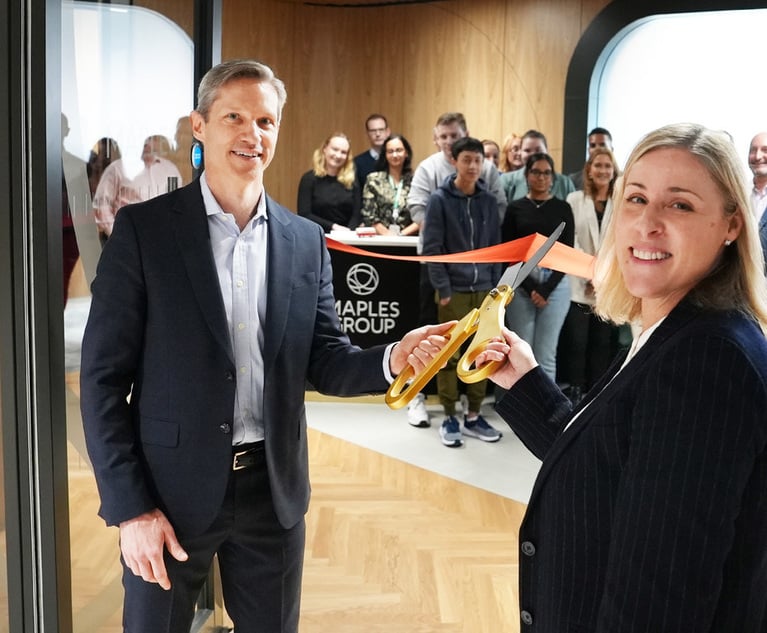Lawyers are hustling to advise clients in Mexico on a host of issues after the government declared the new coronavirus a health emergency by “force majeure.”
The order issued March 30 suspended all nonessential public and private sector activities through April, prompting various industries to question which economic activities remain critical as the country of 120 million inhabitants tries to stop the spread of COVID-19.
Several major economies in Latin America—including Argentina, Colombia and Peru—declared national emergencies well ahead of Mexico. The slow response of the Mexican federal government prompted a handful of Mexican state governors to order businesses to shut before the national health emergency declaration.
The federal order gives the Mexican private sector and their counsel more guidance as to how to proceed in Latin America’s second-biggest economy. Still, questions abound from clients as to how to interpret the decree.
“It’s hard to provide clarity in a single announcement, especially in a relatively short document,” says Vicente Corta, a partner in White & Case’s office in Mexico City who previously held high posts with government financial authorities, including an institute charged with salvaging the banking system after a devastating currency devaluation in the 1990s.
Deciding what’s essential or not is a complex, and sensitive, issue, says Corta. For instance, a company may consider continuing operations during the pandemic if it’s producing in an isolated, rural area that is at little risk of contagion. It’s also unclear to what extent the federal government will enforce the call to close businesses.
Mexican lawyers are also fielding multiple questions about workforce obligations during the contingency. Another hot topic is how clients should address unfulfilled contracts as global commerce slows.
“With borders closing and people staying at home, most commercial relationships are affected or could be affected, and the need for contractual and statutory remedies will be increasing,” lawyers at Holland & Knight’s Mexico City office said.
The firm recommends that businesses initiate negotiations with counterparts to suspend performance until the outbreak has been contained or quarantines have been suspended if both parties expect difficulties in performing their contractual obligations.
After the number of COVID-19 cases topped 1,000, the Mexican government designated as essential those activities connected to health care and pharmaceuticals, public security, food production and distribution. The measures limit the number of people who can gather to 50.
Car makers were among the first to appeal for an exemption. AMIA, an association that represents vehicle manufacturers in Mexico, lobbied to keep plants open so as to save nearly a million jobs in a sector that accounts for 3.8% of gross domestic product.
AMIA did not respond to law.com requests for updates or comment.
Grupo Modelo, brewer of beers such as Corona, had vowed to wind down production at its Mexican factories by April 5, while expressing an eagerness to continue operations.
If the federal government considers the company to be an agro-industrial firm, Modelo said in a statement, it could continue operations with less than a quarter of its employees having to leave their homes.
A company spokesperson said that Modelo officials have appealed directly to the federal government to reconsider, without assistance from outside counsel.
Modelo emphasized that 800,000 family-owned stores in Mexico rely on beer for 40% of their sales. The company also highlighted that its factories have been able to produce and donate 300,000 containers of antibacterial gel to help fight the spread of COVID-19.
More broadly, publicly traded companies are looking to hold virtual annual shareholder meetings in a country very much still accustomed to doing business in-person. Most Mexican companies are required to hold those meetings in April.
Leading Mexican corporate firm Creel, García-Cuéllar, Aiza y Enríquez says Mexican law does not clearly recognize the validity of shareholder meetings that are held virtually.
“However, given the difficulty or impossibility of holding in-person shareholder meetings in the current environment, it has become necessary to implement measures to facilitate legally supporting the validity of those shareholder meetings that are held remotely during the sanitary emergency,” Creel said.
Governments worldwide have unleashed unprecedented spending pledges to fight the coronavirus and minimize damage to their economies. Latin America’s biggest economy, Brazil, has rolled out a $59 billion financial plan that doles assistance to states and municipalities, suspends some tax payments for up to three months and defers debt payments to the national development bank.
Elsewhere, Chile unveiled an $11.7 billion package that defers taxes, provides loans to small businesses and sets aside payments for the poor. The South American country also created a $220 million fund for health care.
Mexican President Andrés Manuel López Obrador, meanwhile, has doubled down on his commitment to government austerity and controversial infrastructure projects. In a national address April 5, López Obrador said the country would do everything possible to avoid taking on more debt and that top government officials will not receive year-end bonuses.
“The government has been very clear that it doesn’t want to provide assistance to the private sector,” said White & Case’s Corta.
This insistence offers further clarity to the private sector, he said, about what needs to be done to remain solvent and fulfill obligations to suppliers and clients. In the country’s favor, he adds, “Mexico has a lot of experience dealing with crisis.”
NOT FOR REPRINT
© 2024 ALM Global, LLC, All Rights Reserved. Request academic re-use from www.copyright.com. All other uses, submit a request to [email protected]. For more information visit Asset & Logo Licensing.
NOT FOR REPRINT
© 2024 ALM Global, LLC, All Rights Reserved. Request academic re-use from www.copyright.com. All other uses, submit a request to [email protected]. For more information visit Asset & Logo Licensing.












